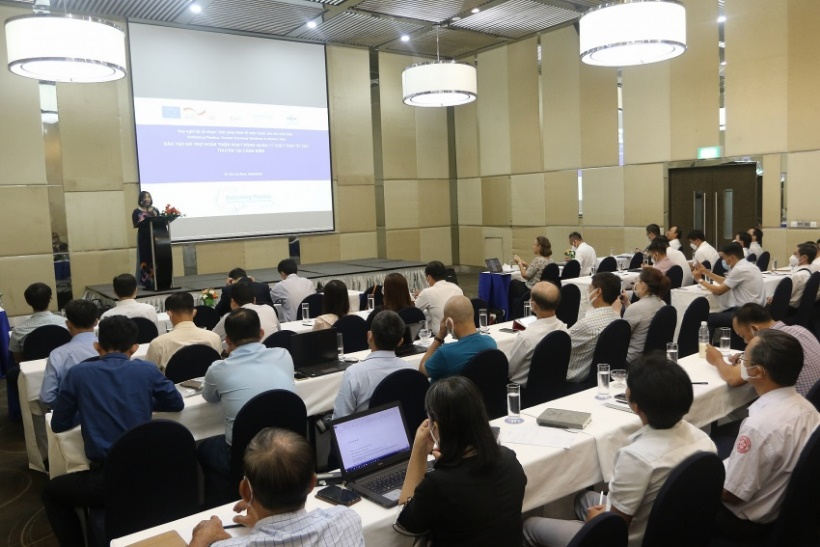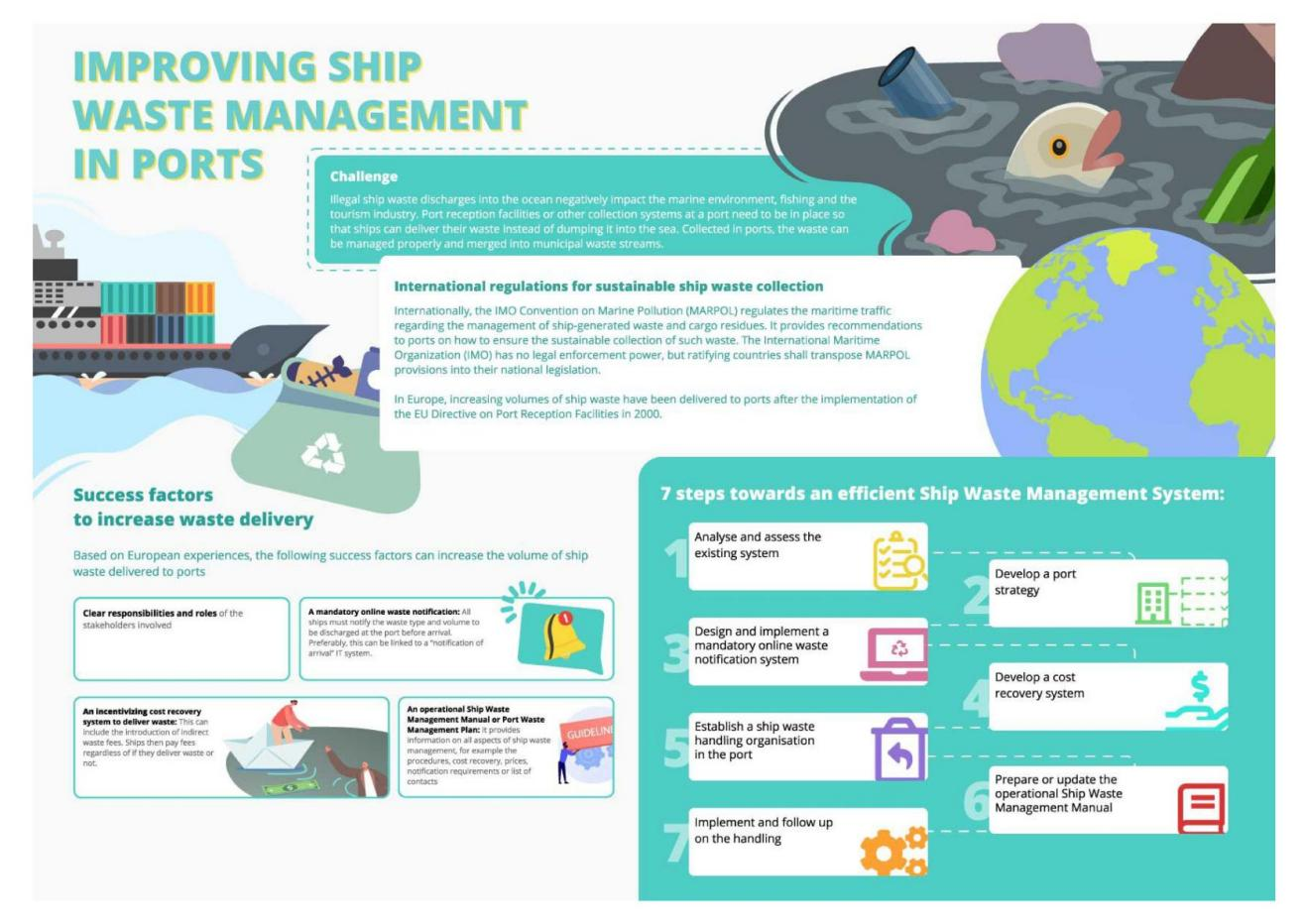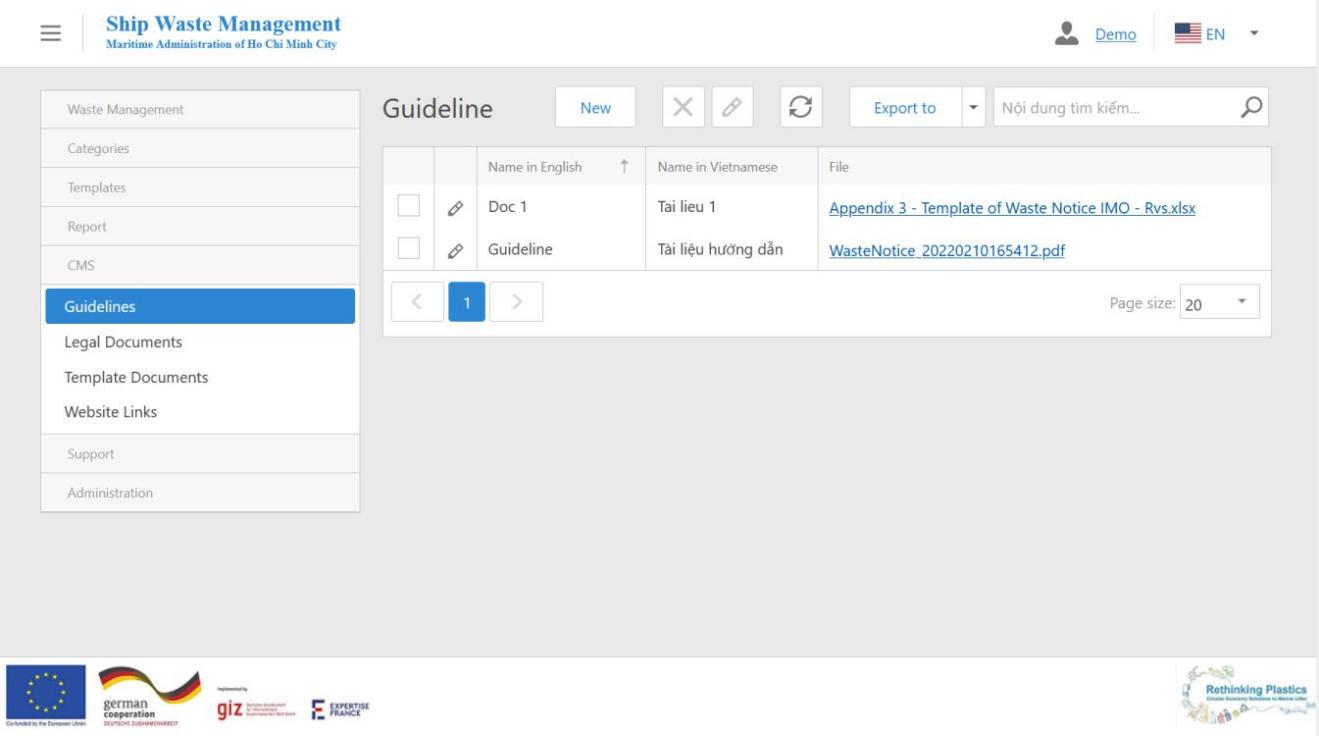Sorting out responsibilities regarding marine and ship waste management
To reduce marine litter, the ‘Rethinking Plastics’ project, funded by the EU and the German government supports Vietnam in reducing marine litter and improving port waste management structures.
Previously on February 23 and 24, both organisations arranged the first workshop in the city for users and operators of the newly implemented Online Ship Waste Notification and Monitoring System.
 |
| The training session attracted the participation of about 80 representatives from related units |
The training was provided for around 80 representatives from seaport enterprises, shipping agents, and waste processing companies within the seaport area of Ho Chi Minh City, as well as the staff of the city’s Maritime Administration.
The Online Ship Waste Notification and Monitoring System is one of the recommended key solutions to enhance the effectiveness of ship waste management at seaports.
Key issues with marine waste
International studies estimate that roughly 150 million tonnes of plastic exist in the ocean today, causing problems for marine life, the economy, human health, and ultimately the climate. Per year, an additional 5-13 million tonnes of plastic waste end up in the oceans, as Rethinking Plastics states.
However, one of the most difficult challenges in fighting marine waste and reducing the amount of illegally abandoned, lost or otherwise discarded fishing gear is the question of who has the overall responsibility to ensure efficient waste collection from ships.
With port owners sometimes operating their own shipping lines and acting as landlords for other international port operators, legal actions to enforce and control waste deliveries are difficult to perform. In many countries, this created a situation where there is no overall coordination of the waste collection and, therefore, insufficient monitoring and control of waste management activities. Involved stakeholders often do not see any benefits in coordinating these processes and are thus reluctant to play a direct or indirect role.
At the workshop on April 29, Pham Thanh Truong, National Maritime Consultant under the Rethinking Plastics project, said that after two years of implementation, one of the most important issues is the need to improve procedures of waste collection and stop illegally discharged waste into the sea, but instead promote transferring it to the ports according to regulations.
“In order to do that, first, the procedure must be convenient and fast. Second, the cost must be transparent, clear, and acceptable for all parties including ship owners, collectors, and ports,” emphasised Truong.
“In Europe, the situation became worrying in the late nineties with an increasing number of illegal waste discharges from ships,” Rethinking Plastics stated. With the implementation of the Baltic Sea Strategy, and after the first related EU Directive (Directive 59/2000 EC on Port Reception Facilities) came into force, indirect waste fees and mandatory waste notification were introduced. This resulted in a significant increase of waste delivered to EU ports.
Tackling marine waste sustainably
The approach for the implementation of an efficient ship waste management system in Vietnamese ports is based on EU experience and has led to a roadmap clarifying seven important steps to establish efficient ship waste handling and compliance with the International Convention for the Prevention of Pollution from Ships (MARPOL).
 |
| Seven steps towards improving ship waste management in ports. Source: Rethinking Plastics |
Although the national government has developed regulations to encourage the expansion and presence of waste reception facilities at ports (see box below), many Vietnamese seaports (except in Ho Chi Minh City, Ba Ria-Vung Tau province, Danang, and Haiphong) are not equipped with adequate facilities and systems for the management of ship waste. So far, most ports also do not invest in their infrastructure, and thus most ship waste collections are conducted by third parties with only limited control and success.
The ‘Rethinking Plastics’ project started initial discussions with the Ministry of Transport and Vinamarine in late 2019. The parties agreed to identify best practices from EU ports and seek strategies to apply these to Vietnamese ports.
In early 2020, a pilot project on Ship Waste Management in Vietnamese Ports, was designed and started implementation in April of that year at Saigon Newport, Cat Lai Terminal. It aims at reducing the illegal dumping of ship waste into the sea by implementing efficient ship waste management.
The project in Cat Lai has provided several recommendations, such as a technical assessment of the existing waste management system, a national review of the legal framework, and deeper discussions and implementation of the best practices from European ports.
 |
| The online system for ship waste management includes guidelines and can be utilised to register waste delivery of ships in advance. Source: Rethinking Plastics |
Based on these findings, the project is currently implementing an efficient online mandatory waste notification system that allows ships to notify the port in advance about the waste type and volume to be delivered to the port. Furthermore, the project suggests an incentivising cost recovery system for waste fees.
These results and learnings will not only make the port fully compliant with international conventions and national regulations but also serve as an example for other ports in Vietnam and Southeast Asia.
Fanny Quertamp, senior advisor to Vietnam at Expertise France, assessed Vietnam as a good example of the project being implemented very well with high efficiency.
“We are happy to share our knowledge and experience from European seaports with Vietnam. We understand there are still many challenges but I am sure that with the support from the government, the Ministry of Transport, and Vinamarine, we will complete the project with the highest efficiency,” Quertamp said. “If all ports come together to do better at waste collection, sorting, and treatment, the synergistic impact on habitats and communities will be huge.”
| Important Vietnamese regulations addressing ship waste management and reception facilities Vietnam Maritime Code 2015 The highest level of national law regulates shipping, port activities, maritime safety, and environmental protection. The law contains clauses relating to waste management by ships and seaports in accordance with the MARPOL 73/78 Convention. Law on Environmental Protection 2020 This is the highest-level national law regulating environmental protection in general. The law contains clauses relating to waste management, which are interpreted additionally in detail by Decree No. 08/2022/ND-CP and Circular No. 02/2022/TT-BTNMT. Decree No. 58/2017/ND-CP Adopted by the government, Decree 58 interprets a number of articles of the Vietnam Maritime Code 2015, including port reception facilities. Decree No. 08/2022/ND-CP Decree 8 interprets a number of articles of the Law on Environmental Protection. Circular No. 41/2017/TT-BGTVT In effect from January 1, 2018, and issued by the Minister of Transport, the circular provides provisions for the management and collection of waste from ships at sea and in seaports, as well as stipulates the responsibility of managing the collection and treatment of wastes from ships at seaports. Circular No. 02/2022/TT-BTNMT Adopted by the Ministry of Natural Resources and Environment, this circular interprets several articles of the Law on Environmental Protection, guiding domestic, industrial, and hazardous waste management. |
What the stars mean:
★ Poor ★ ★ Promising ★★★ Good ★★★★ Very good ★★★★★ Exceptional
Related Contents
Latest News
More News
- Bac Ai Pumped Storage Hydropower Plant to enter peak construction phase (January 27, 2026 | 08:00)
- ASEAN could scale up sustainable aviation fuel by 2050 (January 24, 2026 | 10:19)
- 64,000 hectares of sea allocated for offshore wind surveys (January 22, 2026 | 20:23)
- EVN secures financing for Quang Trach II LNG power plant (January 17, 2026 | 15:55)
- PC1 teams up with DENZAI on regional wind projects (January 16, 2026 | 21:18)
- Innovation and ESG practices drive green transition in the digital era (January 16, 2026 | 16:51)
- Bac Ai hydropower works stay on track despite holiday period (January 16, 2026 | 16:19)
- Fugro extends MoU with PTSC G&S to support offshore wind growth (January 14, 2026 | 15:59)
- Pacifico Energy starts commercial operations at Sunpro Wind Farm in Mekong Delta (January 12, 2026 | 14:01)
- Honda launches electric two-wheeler, expands charging infrastructure (January 12, 2026 | 14:00)

 Tag:
Tag:




















 Mobile Version
Mobile Version